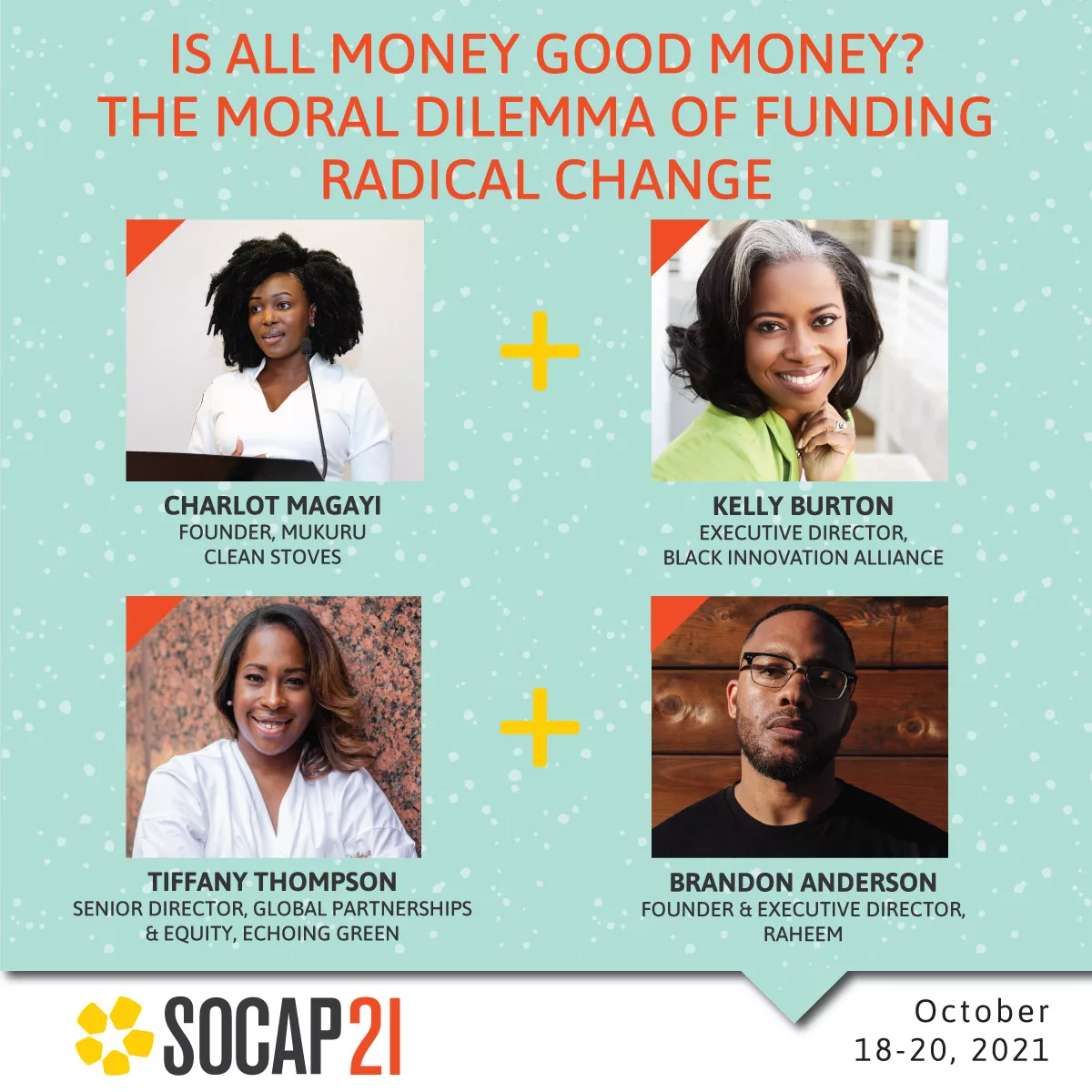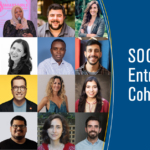Reports like Barriers to Capital, from Echoing Green and The Bridgespan Group, confirm what Black entrepreneurs experience every day: barriers to capital in a financial system that continues to favor their white counterparts. When Black social entrepreneurs do surmount these barriers, they typically are faced with the choice of accepting funding from sources that have a vested interest in the narratives, mindsets, and practices they are working to shift.
The SOCAP21 session, “Is All Money Good Money? The Moral Dilemma of Funding Radical Change,” brought together Black social entrepreneurs and funding leaders to discuss how they navigate a biased philanthropic landscape and create strategies for impact that align with their values.
Moderator Tiffany Thompson of Echoing Green said the early-stage social innovation organization aims to build a community committed to innovation for Black futures. As detailed in the organization’s recent Barriers to Capital report, Black-led companies and organizations face numerous barriers that often prevent their innovations from becoming a reality.
“What brilliance is left on the table when Blacks don’t get funding?” Thompson asked.
Social entrepreneur Brandon Anderson said that question was both easy and hard to answer, because the company he founded, Raheem, and its innovative app — an independent online police reporting service — has often been one of those projects left on the funding table, and he realizes he’s just one of many innovative Black entrepreneurs whose ideas have been slowed or blocked by that exclusion.
“You get solutions that seem reasonable but don’t necessarily address the real need. The Black people who are doing this work are not asking for what’s reasonable any longer,” he said. “What’s being left on the table are unreasonable solutions to problems that have plagued Black communities.”
And when those radical, “unreasonable” solutions don’t get funding, the potential for lasting impact and societal change halts, said Charlot Magayi of Mukuru Clean Stoves, a social enterprise that designs, produces, and distributes reliable and affordable cook stoves for low-income households in Kenya.
“When we do not get the resources or the financing that we need to work on unreasonable solutions — which is what would solve the problems — we end up working under these people who are funded to accelerate the distribution of reasonable solutions,” she said. “We are back to the same problem. We didn’t solve it because we tried to use a very reasonable solution that was never meant for the problem.”
Magayi said she’s seen this happen numerous times to female Black founders in Kenya who accept less ambitious work and fail to realize the full potential of their innovations.
“It would help if some Black founders learned to not give up a piece of the pie too fast, especially early on when you’re desperate for someone to finance you,” she said. “My advice is to really hold on to that entire pie. …The people who give up too much power too soon lose out on the authenticity of their movement.”
Kelly Burton, Executive Director of the Black Innovation Alliance, said the lack of equal opportunity for Black entrepreneurs harms the overall economy.
“If we see disparities, if we see differences in performance, it’s not because the potential is not equal. The potential is there; the opportunity is missing,” Burton said. “One thing that we know about markets is when they are closed, when they are protected, when there is limited competition, there is underperformance. … The loss is not just for Black people; the loss is for global society.”
Watch Is All Money Good Money? The Moral Dilemma of Funding Radical Change
Speakers:
Brandon Anderson, Founder and Executive Director, Raheem
Charlot Magayi, Founder, Mukuru Clean Stoves
Kelly Burton, Executive Director of the Black Innovation Alliance
Tiffany Thompson, Senior Director, Global Partnerships and Equity, Echoing Green, moderator
Warning: This video includes sensitive language.







